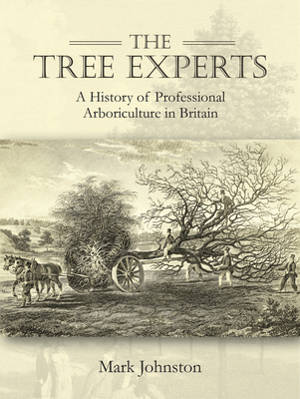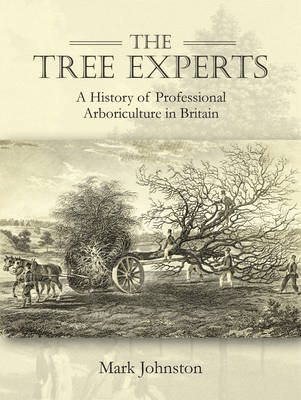
- Retrait gratuit dans votre magasin Club
- 7.000.000 titres dans notre catalogue
- Payer en toute sécurité
- Toujours un magasin près de chez vous
- Retrait gratuit dans votre magasin Club
- 7.000.0000 titres dans notre catalogue
- Payer en toute sécurité
- Toujours un magasin près de chez vous
The Tree Experts
A History of Professional Arboriculture in Britain
Mark Johnston
Livre relié | Anglais
92,45 €
+ 184 points
Description
Trees are now in the public eye as never before. The threat of tree diseases, the felling of street trees, and the challenge of climate change are just some of the issues that have put trees in the media spotlight. At the same time, the trees in our parks, gardens, and streets are a vital resource that can deliver environmental, social, and economic benefits that make our towns and cities attractive, green, and healthy places.
Ever since Roman times when amenity trees were first planted in Britain, caring for those trees has required specialist skills. This is mainly because of the challenges of successfully integrating large trees into the urban environment and the risks involved in working with them, often at height and in close proximity to people, buildings and roads. But who are the people with the specialist expertise to care for our amenity trees? While professionals such as horticulturists, landscape architects, conservationists and foresters have a role to play, it is the arboriculturists who are the 'tree experts'. For centuries arboriculture was often synonymous with forestry or considered an aspect of horticulture, until it emerged in the nineteenth century as a separate discipline. There are now some 22,000 people employed in Britain's arboricultural industry, including practical tree surgeons and arborists, local authority tree officers, and arboricultural consultants.
This is the first book to trace the history of Britain's professional tree experts, from the Roman arborator to the modern chartered arboriculturist. It also discusses the influences from continental Europe and North America that have helped to shape British arboriculture over the centuries. The Tree Experts will have particular appeal to those interested in the natural and built environment, heritage landscapes, social history, and the history of gardening.
Ever since Roman times when amenity trees were first planted in Britain, caring for those trees has required specialist skills. This is mainly because of the challenges of successfully integrating large trees into the urban environment and the risks involved in working with them, often at height and in close proximity to people, buildings and roads. But who are the people with the specialist expertise to care for our amenity trees? While professionals such as horticulturists, landscape architects, conservationists and foresters have a role to play, it is the arboriculturists who are the 'tree experts'. For centuries arboriculture was often synonymous with forestry or considered an aspect of horticulture, until it emerged in the nineteenth century as a separate discipline. There are now some 22,000 people employed in Britain's arboricultural industry, including practical tree surgeons and arborists, local authority tree officers, and arboricultural consultants.
This is the first book to trace the history of Britain's professional tree experts, from the Roman arborator to the modern chartered arboriculturist. It also discusses the influences from continental Europe and North America that have helped to shape British arboriculture over the centuries. The Tree Experts will have particular appeal to those interested in the natural and built environment, heritage landscapes, social history, and the history of gardening.
Spécifications
Parties prenantes
- Auteur(s) :
- Editeur:
Contenu
- Nombre de pages :
- 560
- Langue:
- Anglais
Caractéristiques
- EAN:
- 9781911188889
- Date de parution :
- 02-08-21
- Format:
- Livre relié
- Format numérique:
- Genaaid
- Dimensions :
- 188 mm x 249 mm
- Poids :
- 1719 g

Les avis
Nous publions uniquement les avis qui respectent les conditions requises. Consultez nos conditions pour les avis.






